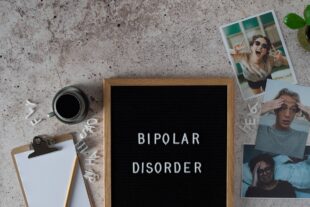Signs of Rapid Cycling Bipolar Disorder
Christian Counselor Spokane
Rapid cycling bipolar disorder is a type of bipolar disorder characterized by four or more episodes of mania, hypomania, or depression within a 12-month period. Rapid cycling is more common in women and can be more difficult to treat than other forms of bipolar disorder. Treatment typically involves a combination of medication and therapy and may include mood stabilizers, antidepressants, and atypical antipsychotics.
Signs of rapid cycling bipolar disorder.
The signs of rapid cycling bipolar disorder can include:
- Frequent and rapid changes in mood, from manic or hypomanic episodes to depressive episodes, or vice versa.
- Intense and unpredictable mood swings, with symptoms of mania, hypomania, or depression lasting for days or weeks at a time.
- Difficulty functioning in daily life due to the severity and frequency of mood episodes.
- Increased risk for substance abuse and self-harm
- Difficulty maintaining relationships and keeping a stable job or education.
It’s important to note that everyone’s experience with the disorder is different, and others signs may be present too. If you suspect you or someone you know may have rapid cycling bipolar disorder, it’s important to seek professional help.
How rapid cycling bipolar disorder differs from bipolar disorder.
 Rapid cycling bipolar disorder is a subtype of bipolar disorder characterized by a pattern of four or more episodes of mania, hypomania, or depression within a twelve-month period. This contrasts with regular bipolar disorder, which typically involves fewer and less frequent mood episodes.
Rapid cycling bipolar disorder is a subtype of bipolar disorder characterized by a pattern of four or more episodes of mania, hypomania, or depression within a twelve-month period. This contrasts with regular bipolar disorder, which typically involves fewer and less frequent mood episodes.
Rapid cycling can make the disorder more difficult to diagnose and treat, as the symptoms can be more severe and unpredictable. People with rapid cycling may have trouble functioning in daily life due to the frequency and intensity of their mood episodes. They also have a higher risk for substance abuse and self-harm.
It’s also important to note that rapid cycling can affect people differently, some may have more mania episodes, and others more depression. There is also a higher risk of co-occurring conditions such as anxiety disorder, PTSD, and others.
How rapid cycling bipolar disorder is diagnosed.
Rapid cycling bipolar disorder is typically diagnosed by a mental health professional, such as a psychiatrist or psychologist. The diagnosis process typically involves a thorough evaluation of the individual’s symptoms, medical history, and family history.
During the evaluation, the mental health professional will ask the individual about their symptoms, such as the frequency, duration, and intensity of their mood episodes. They will also ask about any other symptoms the individual may be experiencing, such as sleep disturbances, changes in appetite, and difficulty functioning in daily life.
The mental health professional may also use diagnostic tools such as the Diagnostic and Statistical Manual of Mental Disorders (DSM-5) criteria for bipolar disorder, and other assessment scales, to help guide the diagnosis.
Additionally, the professional may also conduct a physical examination and lab tests to rule out other potential causes of the symptoms, such as medical conditions or the side effects of medication.
It is important to note that the diagnosis process may take time and multiple evaluations, as bipolar disorder symptoms can be similar to other conditions such as depression or anxiety.
Substance abuse and rapid cycling bipolar disorder.
There is a strong link between substance abuse and rapid cycling bipolar disorder. People with rapid cycling bipolar disorder are at a higher risk for developing substance abuse problems, particularly during manic or hypomanic episodes.
Drugs and alcohol can worsen symptoms of bipolar disorder, and make it harder to manage the disorder. Substance abuse can also increase the risk of self-harm and suicide. It’s important to note that alcohol and some drugs can also interact with medications used to treat bipolar disorder, making them less effective or even harmful.
On the other hand, people with substance abuse problems are at higher risk of developing bipolar disorder or other mental health issues.
 Treatment for comorbid substance abuse and rapid cycling bipolar disorder typically involves addressing both conditions simultaneously, through a combination of medication, therapy, and support groups. This may include medication-assisted treatment, behavioral therapies, and support groups like Alcoholics Anonymous or Narcotics Anonymous.
Treatment for comorbid substance abuse and rapid cycling bipolar disorder typically involves addressing both conditions simultaneously, through a combination of medication, therapy, and support groups. This may include medication-assisted treatment, behavioral therapies, and support groups like Alcoholics Anonymous or Narcotics Anonymous.
It is also important to have close monitoring and follow-up with a mental health professional, as the treatment plan may need to be adjusted as the individual’s needs change over time.
Treating both conditions at the same time can be challenging and requires a coordinated effort between mental health professionals and addiction specialists. With the right treatment and support, people with rapid cycling bipolar disorder and substance abuse problems can improve their symptoms and overall quality of life.
How rapid cycling bipolar disorder affects family members.
Rapid cycling bipolar disorder can have a significant impact on the family members of the individual affected by the disorder. The frequent and intense mood episodes can be difficult for family members to understand and cope with. They may also struggle with feelings of helplessness, guilt, and frustration as they try to support their loved one.
Here are some ways that rapid cycling bipolar disorder can affect family members:
Emotional strain.
Family members may experience a range of emotions, such as anxiety, sadness, and anger, as they witness their loved one’s mood episodes. They may also feel guilty or blame themselves for the individual’s condition.
Financial strain.
The individual’s frequent hospitalizations, doctor visits, and medication costs can put a financial strain on the family.
Social isolation.
Family members may withdraw from their own social activities and relationships to take care of their loved one.
Caregiver burden.
 Family members, especially spouses or partners, may take on the role of primary caregivers for their loved one, which can be emotionally and physically demanding.
Family members, especially spouses or partners, may take on the role of primary caregivers for their loved one, which can be emotionally and physically demanding.
Impact on children.
Children may be affected emotionally by the mood episodes of a parent, and may have difficulty understanding why their parent is behaving in certain ways.
Family members need to have access to support and resources, such as counseling, therapy, or support groups. This can help them to better understand the disorder and cope with the impact it has on their lives. The affected individual should include their family members in their treatment plan and keep them informed about the treatment progress, as well as the potential side effects of the medications.
Treatment options.
Treatment for this condition typically involves a combination of medication and therapy. The goal of treatment is to reduce the frequency and severity of mood episodes, improve functioning, and reduce the risk of complications such as substance abuse and self-harm.
Medications commonly used to treat rapid cycling bipolar disorder include:
Mood stabilizers.
These medications, such as lithium, valproic acid, and carbamazepine, are used to help stabilize mood and prevent manic and depressive episodes. They may take several weeks to be fully effective.
Antipsychotics.
Atypical antipsychotics, such as quetiapine and olanzapine, may be used to help reduce symptoms of mania and depression. They can be used as monotherapy or in combination with mood stabilizers.
Antidepressants.
These medications, such as selective serotonin reuptake inhibitors (SSRIs) or tricyclic antidepressants, may be used to help reduce symptoms of depression. However, they should be used with caution in people with bipolar disorder, as they may trigger manic or hypomanic episodes.
 The treatment plan should be tailored to the individual’s specific needs and may need to be adjusted over time. Regular monitoring and follow-up with a mental health professional are essential to ensure the treatment plan is working.
The treatment plan should be tailored to the individual’s specific needs and may need to be adjusted over time. Regular monitoring and follow-up with a mental health professional are essential to ensure the treatment plan is working.
Therapy can also be an important aspect of treatment for rapid cycling bipolar disorder. This can include cognitive behavioral therapy (CBT), which can help individuals learn to manage their symptoms and improve their functioning. Family therapy and psychoeducation can also be beneficial, as they can help family members understand the disorder and support the individual in their treatment.
Treatment for this condition requires a comprehensive approach, including medication and therapy, that is tailored to the individual’s specific needs and monitored regularly by a mental health professional.
Christian counseling.
With the right treatment and support, people with rapid cycling bipolar disorder and their family members can improve their symptoms and overall quality of life. Contact a compassionate and experienced Christian counselor who can offer practical help and spiritual encouragement today.
“Tear”, Courtesy of Cristian Newman, Unsplash.com; CC0 License; “Bipolar Disorder”, Courtesy of Micheile Dot Com, Unsplash.com, CC0 License; “Standing by the Water”, Courtesy of Ryan Moreno, Unsplash.com, CC0 License; “Sulking”, Courtesy of Andrej Lišakov, Unsplash.com, Unsplash+ License





